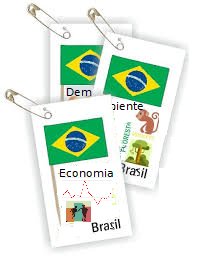
Is it possible to rethink Brazil?
The political moment says no, but for those who think and can see these  “temperate zones”, as Priest Antunes called it Rethinking Portugal, which is in the plural because there is “beyond political democracy, social democracy”, and the thinker affirms that “it was a mistake to think of the structures of general, atomized freedom,” says Priest Antunes to rethink Portugal.
“temperate zones”, as Priest Antunes called it Rethinking Portugal, which is in the plural because there is “beyond political democracy, social democracy”, and the thinker affirms that “it was a mistake to think of the structures of general, atomized freedom,” says Priest Antunes to rethink Portugal.
Priest Antunes stated that “their formulators and apologists did not see – or saw it too well – that the” natural law “they advocated was, in fact, the right of the stronger, than the” invisible hand “that business would only increase the profits and profits of those already possessed, that the harmony, which they envisioned in the of the “natural laws” of the market of supply and demand, would in reality constitute a terrible disharmony if it were not corrected by the imperative of the common social welfare, that the freedom granted to all, in a great impetus of generosity, worked, in practice, only as the privilege of some “(Antunes, 2011).
For this reason, Priest Antunes explains: “For more than a century and a half, in order that” this freedom of heart could be translated into the effectiveness of the application, many struggles, harsh struggles were fought “, speaking of the struggles in Portugal.
“In the name of justice and equity, in the name of the history that was moving – or should be – in the sense of equality, in the name of the fraternity that we should all unite – especially the weakest and oppressed, the disinherited and those left on account: men, groups, classes and nations, “said Father Antunes about Portugal in the 1970s “To this day. It is today the combination of political democracy and social democracy that is the great concern of the most conscious and most critical, lucid and generous sector of all Humanity “(Antunes, 2011), but in Brazil the project has been postponed, and the moment which is still in wait, and seems delayed. What followed of the Carnation Revolution in Portugal was a moment of openness and lucidity, but with the entry into the European Community all this came to be shaken, with allegations of corruption in the José Sócrates government (2005-2009), and with the crisis financial crisis in 2010-2014, and named Troika intervention.
An European intervention that the Portuguese people called the Troika, composed of the European Commission, the European Central Bank and the IMF, which managed the financial crisis with many protests by the Portuguese. What can Brazil do with its economic, political and moral crisis? Without the necessary dialogue and openness, financial interventionism will be a disaster, politically if it is repressive it will be hateful, and the social thing almost unthinkable. It is necessary to update discourses, interpretations and authors, almost all dated references of the beginning of the century, who ignore the new media and new thinkers.
What can Brazil do with its economic, political and moral crisis? Without the necessary dialogue and openness, financial interventionism will be a disaster, the politician if he is repressive will be hateful, and the social unthinkable.
Will there be channels for dialogue with society? Is the press free? it seems that Rethinking Brazil at this moment is almost impossible, but we cannot anticipate the facts even if they are easily presumed, it is a political error that can worsen the fragile stage of Brazilian democracy, we would create a pre-truth or a pre-fact.









